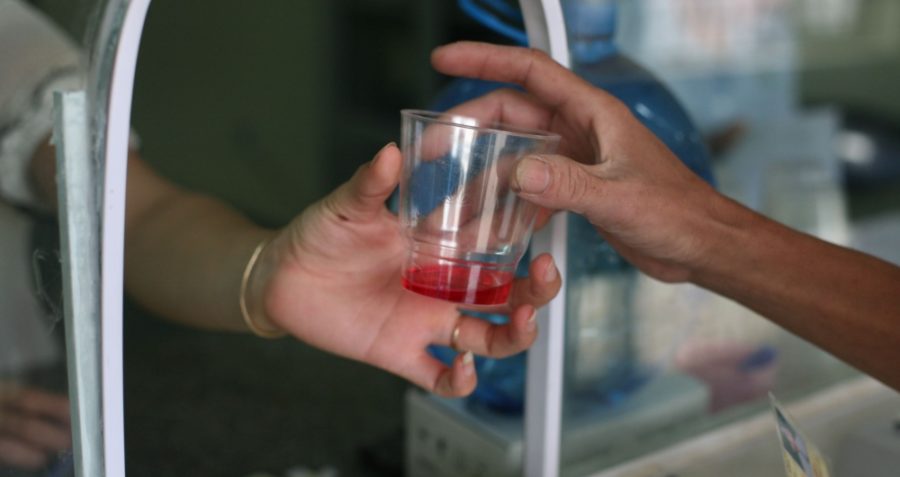“I feel human again”: Nga’s story from Vietnam
 © Mr Thahn, SCDI
© Mr Thahn, SCDI
The Alliance is rebuilding lives with methadone programmes and reducing the spread of HIV through needle exchange.
Nga has been living with HIV for 10-12 years. He was a heroin addict until he took part in a methadone programme and got proper support. “Methadone has replaced heroin, that’s the most important change in my life,” says Nga. “Not that I take this medicine, I can manage my addiction. I feel optimistic, totally different to before.”
At the Alliance, we’re rebuilding lives with methadone programmes and we’re reducing the spread of HIV through needle exchange. We do this because it works.
Before 2004, the Vietnamese government’s approach to drug use and sex work was to ‘rehabilitate offenders’ by placing them in compulsory detention centres for up to two years. Since 2004, a large-scale harm reduction programme, supported by UK aid and World Bank, has been providing clean needles and syringes for drug users and condoms to sex workers in 32 of Vietnam’s 64 provinces.
“I was selected for the methadone pilot programme, I gave it a try” says Nga. “Twice a month I also go to meetings at a support centre. The centre also provides us with assistance to manage cravings for drugs and helps us seek employment. Since I stopped taking heroin I feel human again.”
Reducing HIV infections
The programme overall has been successful in reducing the number of new HIV infections among key populations. An independent evaluation† showed that in the provinces reached by the programme, between 2-56% of new infections were averted between 2004-2009.
The key factor affecting the extent of the success is the level of coverage. In Hai Phong, one of Vietnam’s largest metropolitan areas, and which had one of the highest level of programme coverage for needle and syringe provision, an estimated 56% of new infections were averted among drug users. In the same province, the estimated effect (of both needle and syringe and condom provision) is a 39% reduction in the number of new infections among the total population.
Need for continued support
Given Vietnam’s rapid development – Vietnam attained middle-income status in 2010 – the UK’s Department for International Development (DFID) is phasing out its aid to Vietnam and plans to conclude Millennium Development Goal related programmes, such as this, at the end of 2013.
If support ends in 2013 without ensuring the programme’s continuity, it risks not just leaving a void, but unravelling the progress made on reducing the number of new infections among key populations. Overall HIV infections in Vietnam continue to rise, showing there is a need for scale-up of these evidence-based programmes.
† Wilson.D (2011) Evaluation of the Epidemiological impact of harm reduction programs on HIV in Vietnam, UNAIDS, World Bank
This article was written as the International HIV/AIDS Alliance, before we changed our name to Frontline AIDS.
Tags
Harm reductionUNAIDSVietnam


